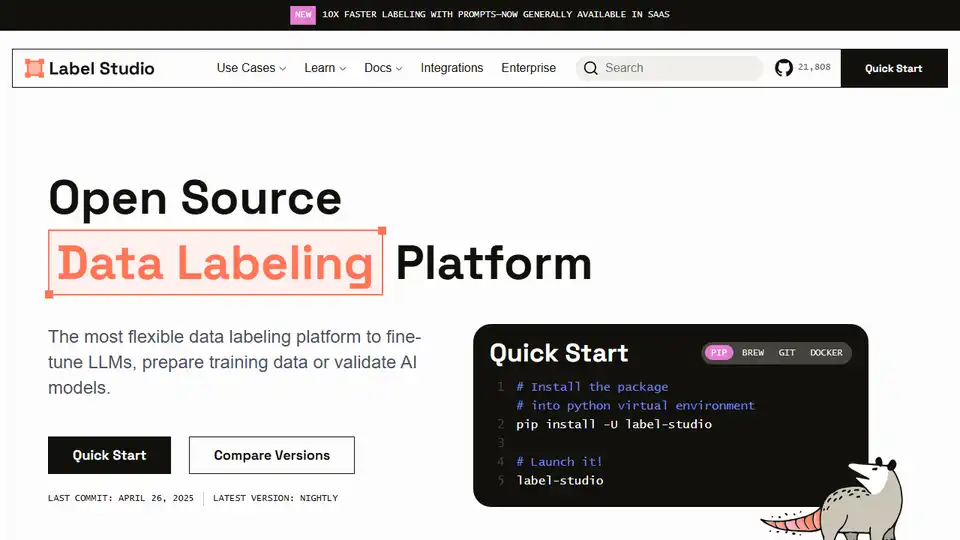
Label Studio
Overview of Label Studio
Label Studio: The Open Source Data Labeling Platform for AI
What is Label Studio? Label Studio is a versatile open-source data labeling tool designed to streamline the process of preparing high-quality training data for machine learning and artificial intelligence models. It stands out as a flexible solution capable of handling various data types, including text, images, audio, video, and time series data.
How does Label Studio work?
Label Studio offers a user-friendly interface that allows data scientists, machine learning engineers, and domain experts to collaborate on labeling tasks efficiently. Its configurable layouts and templates can be adapted to suit specific datasets and workflows. Label Studio also integrates with ML/AI pipelines through webhooks, Python SDK, and API, facilitating authentication, project creation, task import, and model prediction management.
Key Features of Label Studio:
- Versatile Data Type Support: Label every data type from GenAI, Images, Audio, Text, Time Series, Multi-Domain to Video.
- Flexible Configuration: Configurable layouts and templates adapt to your dataset and workflow.
- ML-Assisted Labeling: Accelerate labeling with predictions from integrated ML backends.
- Cloud Storage Connectivity: Directly label data in cloud object storage with S3 and GCP integrations.
- Data Exploration & Management: Advanced filters in the Data Manager help prepare and manage datasets.
- Multi-Project Support: Support multiple projects, use cases and data types in one platform.
Use Cases:
- LLM Fine-Tuning: Label Studio supports supervised fine-tuning and reinforcement learning from human feedback (RLHF) for Large Language Models (LLMs).
- LLM Evaluations: Evaluate LLM responses with moderation, grading, and side-by-side comparisons.
- RAG Evaluation: Evaluate Retrieval-Augmented Generation (RAG) systems using Ragas scores and human feedback.
Why is Label Studio important?
High-quality data is crucial for the success of AI and machine learning projects. Label Studio simplifies the data labeling process, making it more efficient and accessible. By providing a centralized platform for data labeling, Label Studio fosters collaboration and ensures data consistency.
Who is Label Studio for?
Label Studio is ideal for:
- Data Scientists
- Machine Learning Engineers
- AI Researchers
- Data Annotators
- Organizations looking to improve the quality of their training data
How to use Label Studio?
- Installation: Install Label Studio using pip (
pip install -U label-studio), Brew or Docker. - Launch: Run
label-studioto start the platform. - Configuration: Configure the labeling interface based on your data type and project requirements.
- Labeling: Start labeling your data using the intuitive interface.
- Integration: Integrate Label Studio with your ML/AI pipeline using the API, SDK or Webhooks.
Community and Support:
Label Studio has a vibrant community of data scientists and machine learning practitioners. With over 24,800 GitHub stars and a large Slack community, users can easily find support and share their experiences.
Conclusion
Label Studio emerges as a powerful and flexible data labeling platform, especially valuable in the era of LLMs and generative AI. Its open-source nature, combined with its versatile features, makes it an excellent choice for organizations seeking to enhance their AI models with high-quality training data. The ability to handle diverse data types, integrate with existing ML pipelines, and facilitate collaboration makes Label Studio a valuable asset for any data science team. By simplifying the data labeling process, Label Studio empowers users to unlock the full potential of their AI initiatives. What is the best way to create quality AI models? High quality labeled data through Label Studio.
Best Alternative Tools to "Label Studio"
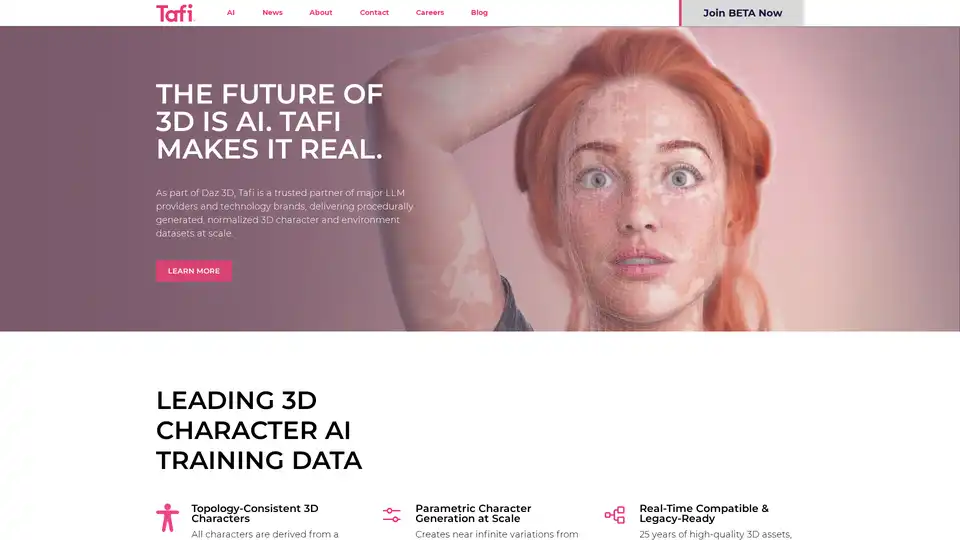
Tafi Avatar, part of Daz 3D, provides procedurally generated, normalized 3D character and environment datasets for AI training. It offers parametric character generation at scale, realistic human anatomy, and pipeline flexibility.
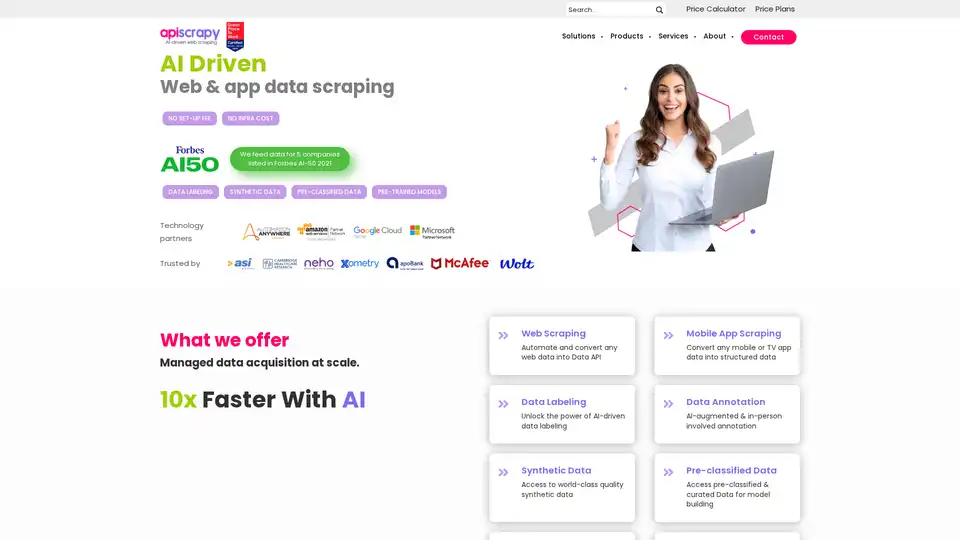
APISCRAPY is an AI-driven platform that offers web and app data scraping, data labeling, and workflow automation. It converts any website data into a ready-to-use data API and provides on-demand curated data for building AI products and services.
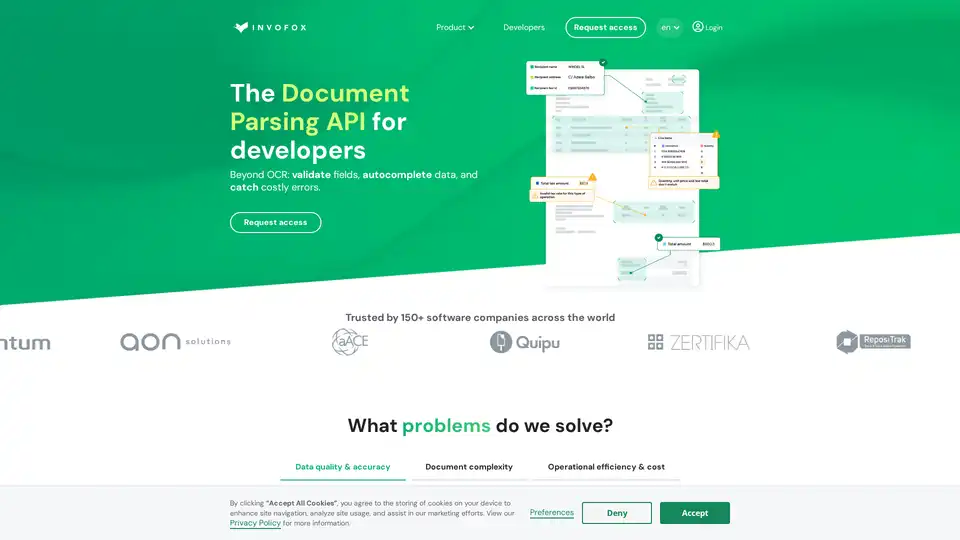
Invofox API is a document parsing tool that uses AI to extract, validate, and autocomplete data from invoices, receipts, payslips, and other documents. It offers built-in schemas and webhook delivery for structured data.
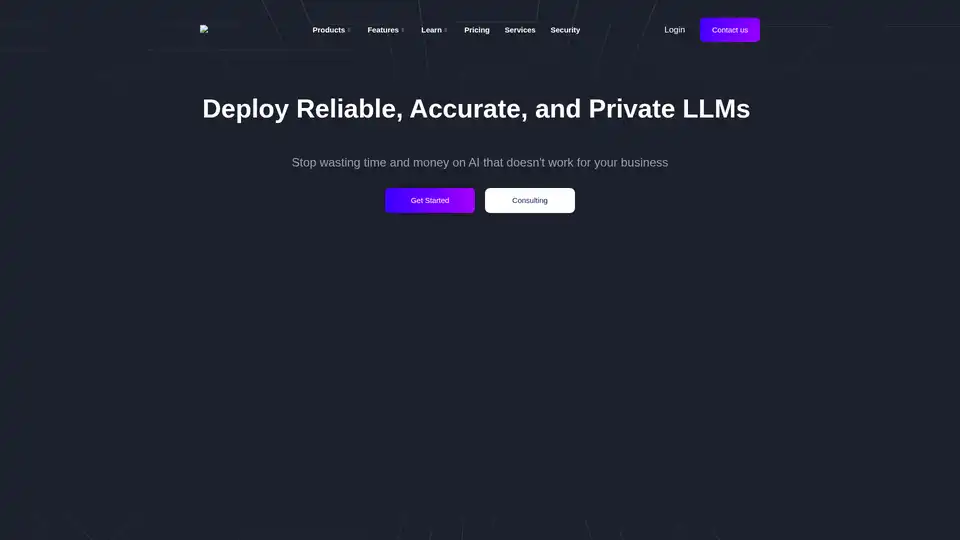
UBIAI enables you to build powerful and accurate custom LLMs in minutes. Streamline your AI development process and fine-tune LLMs for reliable AI solutions.
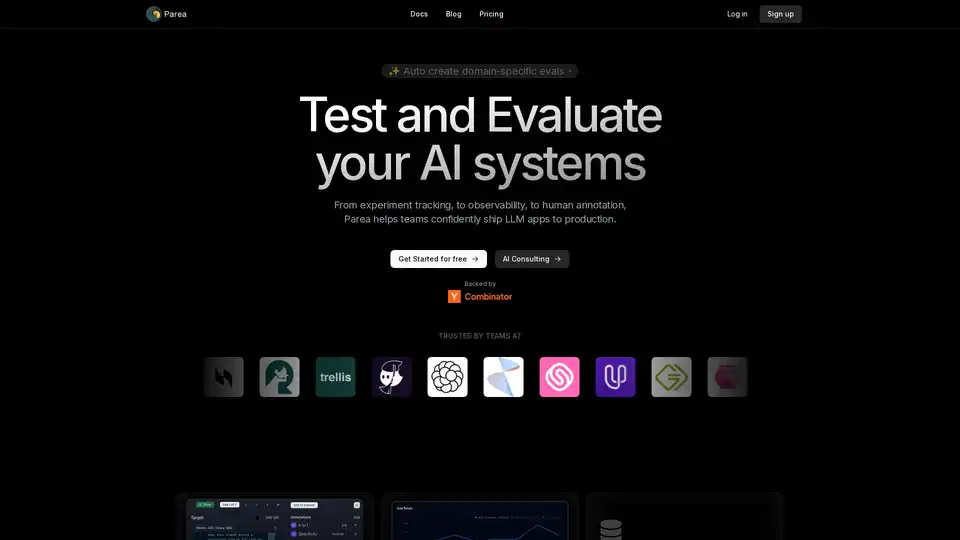
Parea AI is the ultimate experimentation and human annotation platform for AI teams, enabling seamless LLM evaluation, prompt testing, and production deployment to build reliable AI applications.
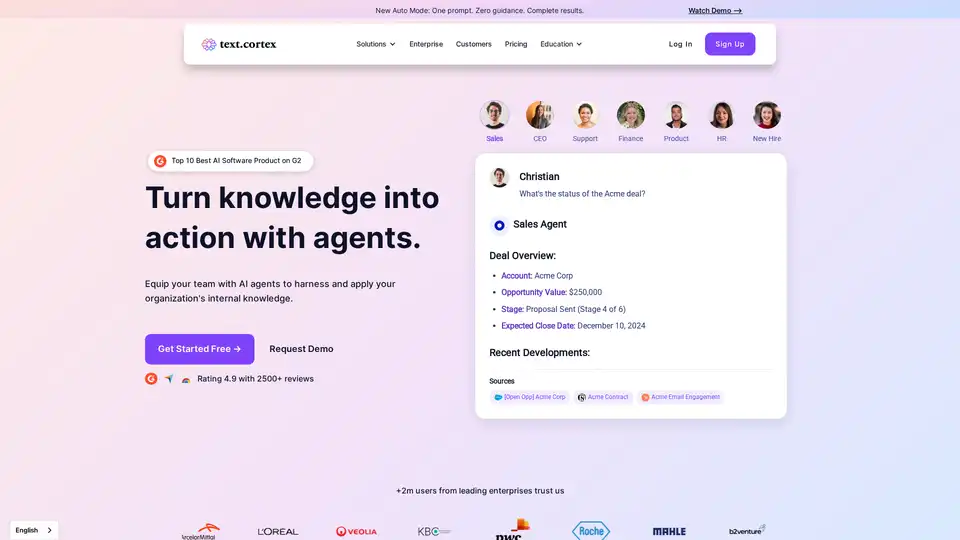
TextCortex is a secure AI platform for enterprise knowledge management, transforming scattered data into actionable insights with AI agents, workflow automation, and seamless integrations for smarter business decisions.
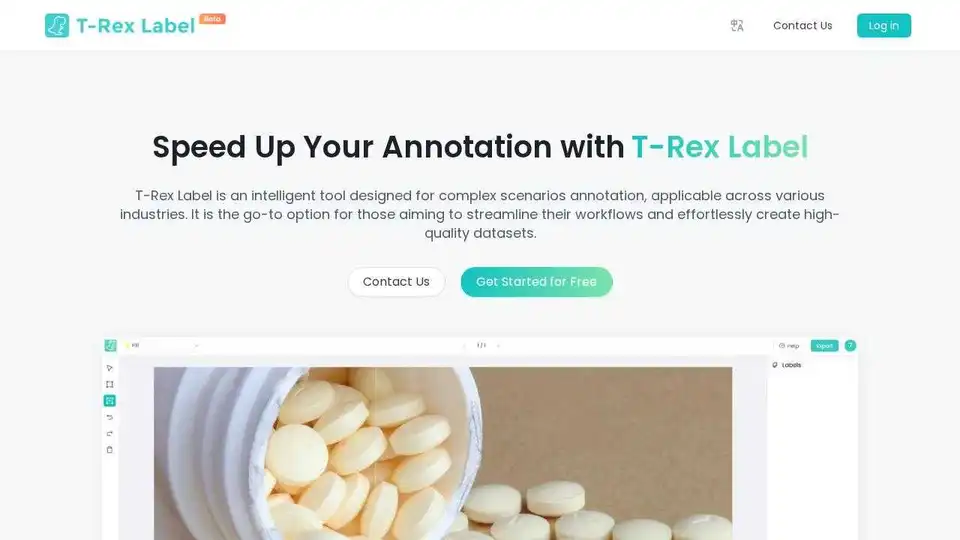
T-Rex Label is an AI-powered data annotation tool supporting Grounding DINO, DINO-X, and T-Rex models. It's compatible with COCO and YOLO datasets, offering features like bounding boxes, image segmentation, and mask annotation for efficient computer vision dataset creation.
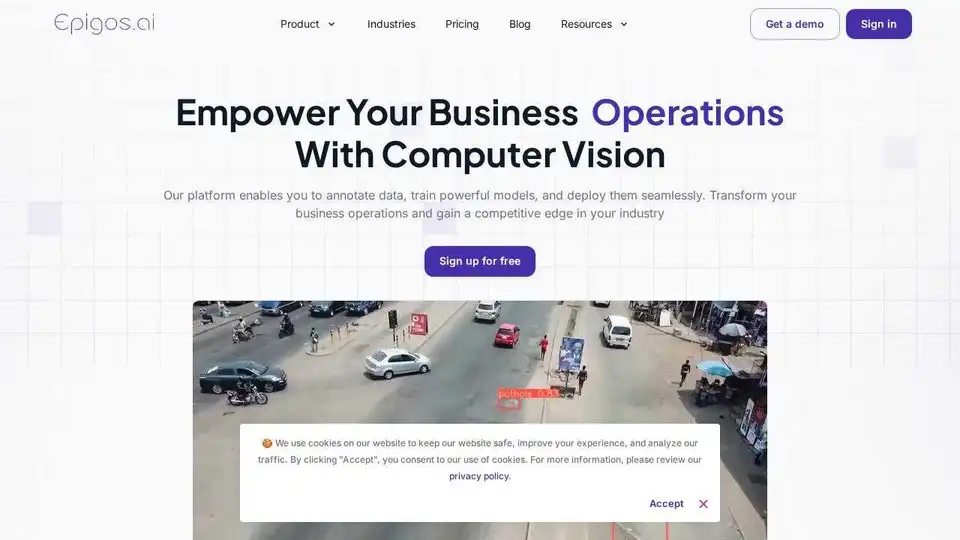
Epigos AI empowers businesses with a computer vision platform to annotate data, train models, and deploy them seamlessly. Automate processes and drive intelligent decision-making.
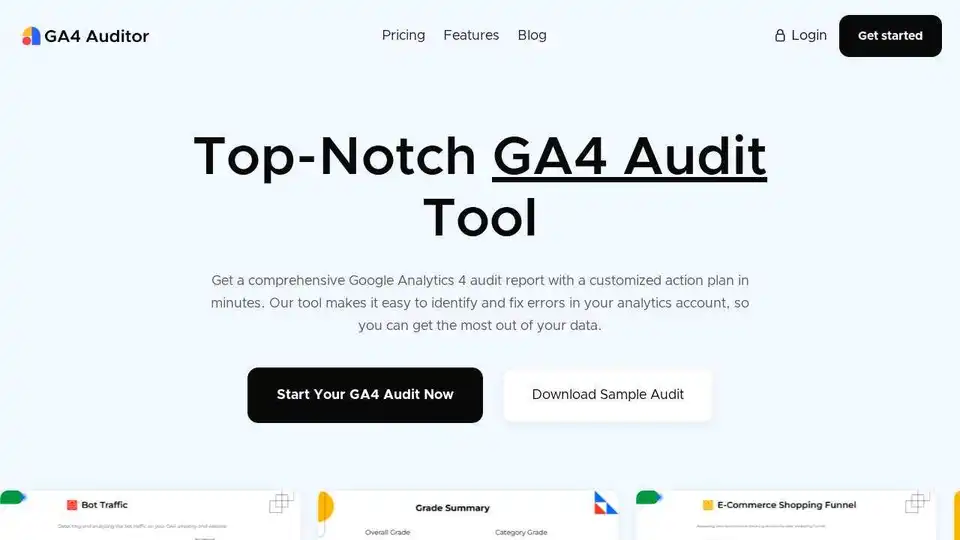
GA4 Auditor is an automated tool for comprehensive Google Analytics 4 audits. Get actionable insights in minutes to improve data accuracy and website performance.
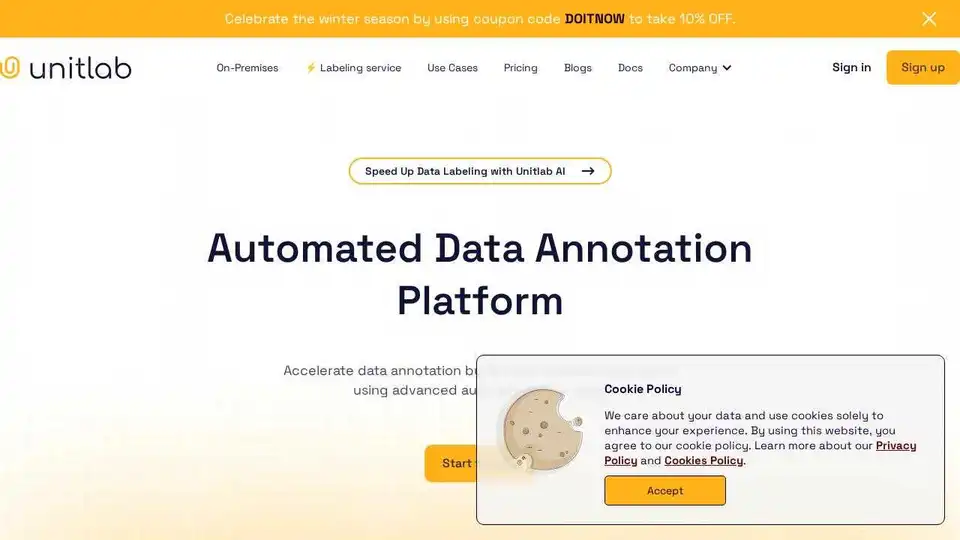
Unitlab AI accelerates data annotation by 15x with auto-annotation tools, improving quality through collaboration. An AI-powered platform for dataset curation and model validation.
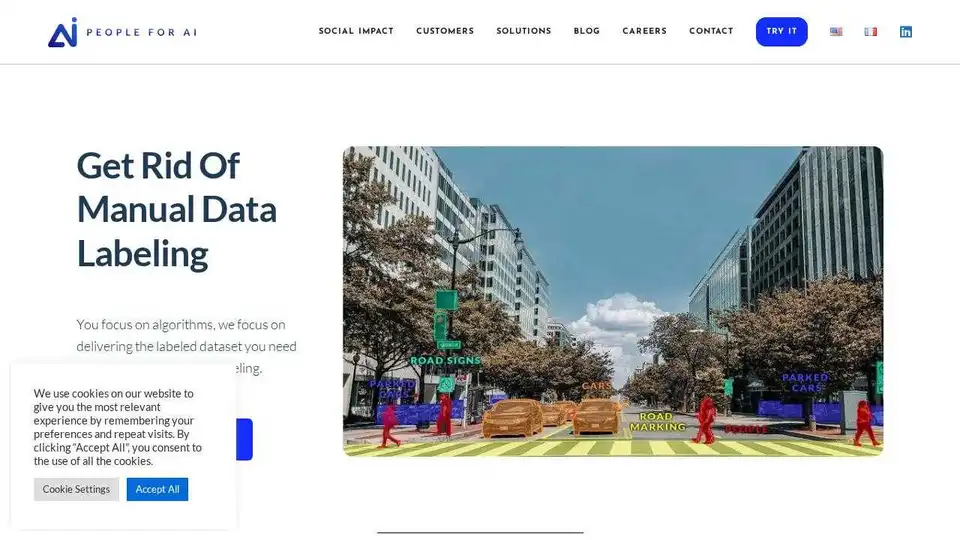
People For AI provides expert data labeling services, delivering high-quality training datasets for machine learning projects. Focus on algorithms, they handle annotation.
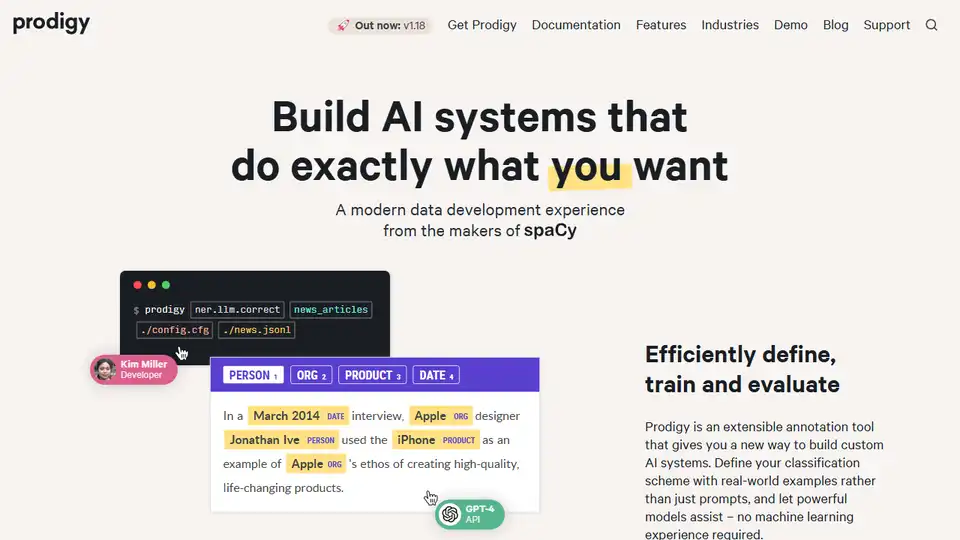
Prodigy: A downloadable annotation tool for AI, ML & NLP tasks. Train models with real-world examples. Runs locally, full privacy.
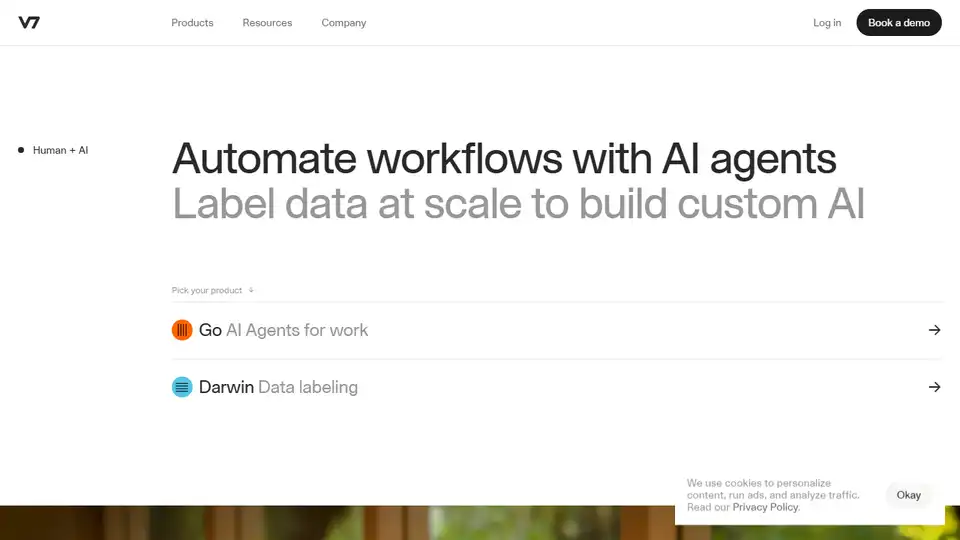
Automate workflows and build domain-specific AI solutions with V7 Go. AI document processing and data labeling for various industries.
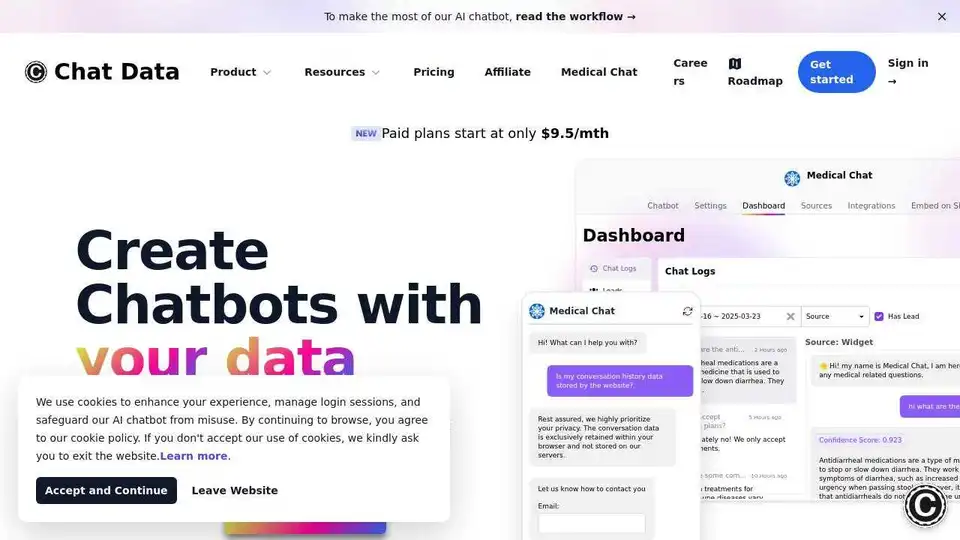
Chat Data is an AI chatbot creation tool for websites, Discord, Slack, Shopify, WordPress, & more. Train once, deploy everywhere. Customize, connect, & share.
